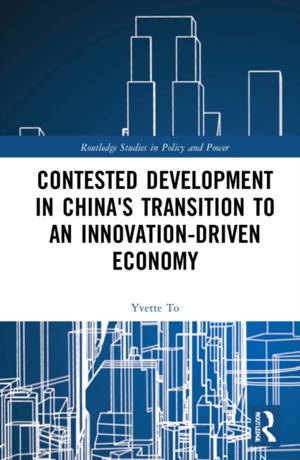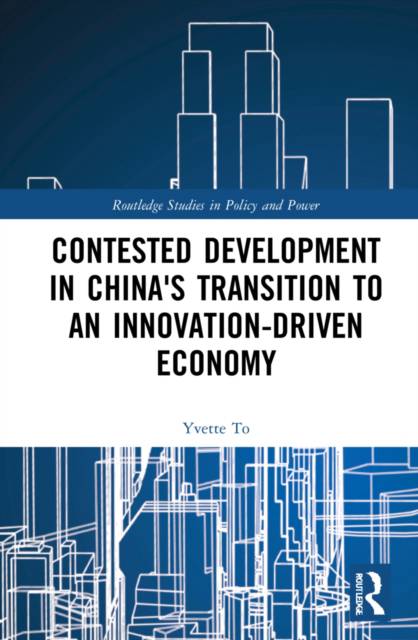
- Retrait gratuit dans votre magasin Club
- 7.000.000 titres dans notre catalogue
- Payer en toute sécurité
- Toujours un magasin près de chez vous
- Retrait gratuit dans votre magasin Club
- 7.000.0000 titres dans notre catalogue
- Payer en toute sécurité
- Toujours un magasin près de chez vous
Contested Development in China's Transition to an Innovation-Driven Economy
Yvette ToDescription
This book investigates how technology and innovation policies in contemporary China are impacted by collaboration and conflicts between different classes and interests in a world economy, in which competitiveness is defined by the successful leverage of emerging technologies.
Focusing on the actual processes and outcomes of technological upgrading in three dynamic sectors, the book presents an alternative approach to understanding China's industrial upgrading strategies, by examining the ways in which the making and implementation of policies are shaped by political struggles between state actors and dominant capitalist interests in the context of global capitalism. In doing so, the book challenges influential institutionalist approaches as explanations of institutional change, positing instead a political economy framework grounded in social conflict theory to reveal how power relationships and politics are intrinsic to the evolution, form, and function of institutions.
This book will be of key interest to scholars and students of international political economy, development studies, globalisation and innovation, China and Chinese politics, and public policy.
Spécifications
Parties prenantes
- Auteur(s) :
- Editeur:
Contenu
- Nombre de pages :
- 212
- Langue:
- Anglais
- Collection :
Caractéristiques
- EAN:
- 9781032101330
- Date de parution :
- 20-05-22
- Format:
- Livre relié
- Format numérique:
- Genaaid
- Dimensions :
- 156 mm x 234 mm
- Poids :
- 498 g

Les avis
Nous publions uniquement les avis qui respectent les conditions requises. Consultez nos conditions pour les avis.






